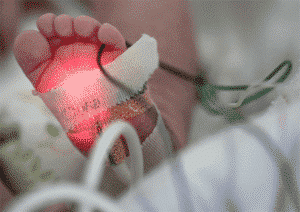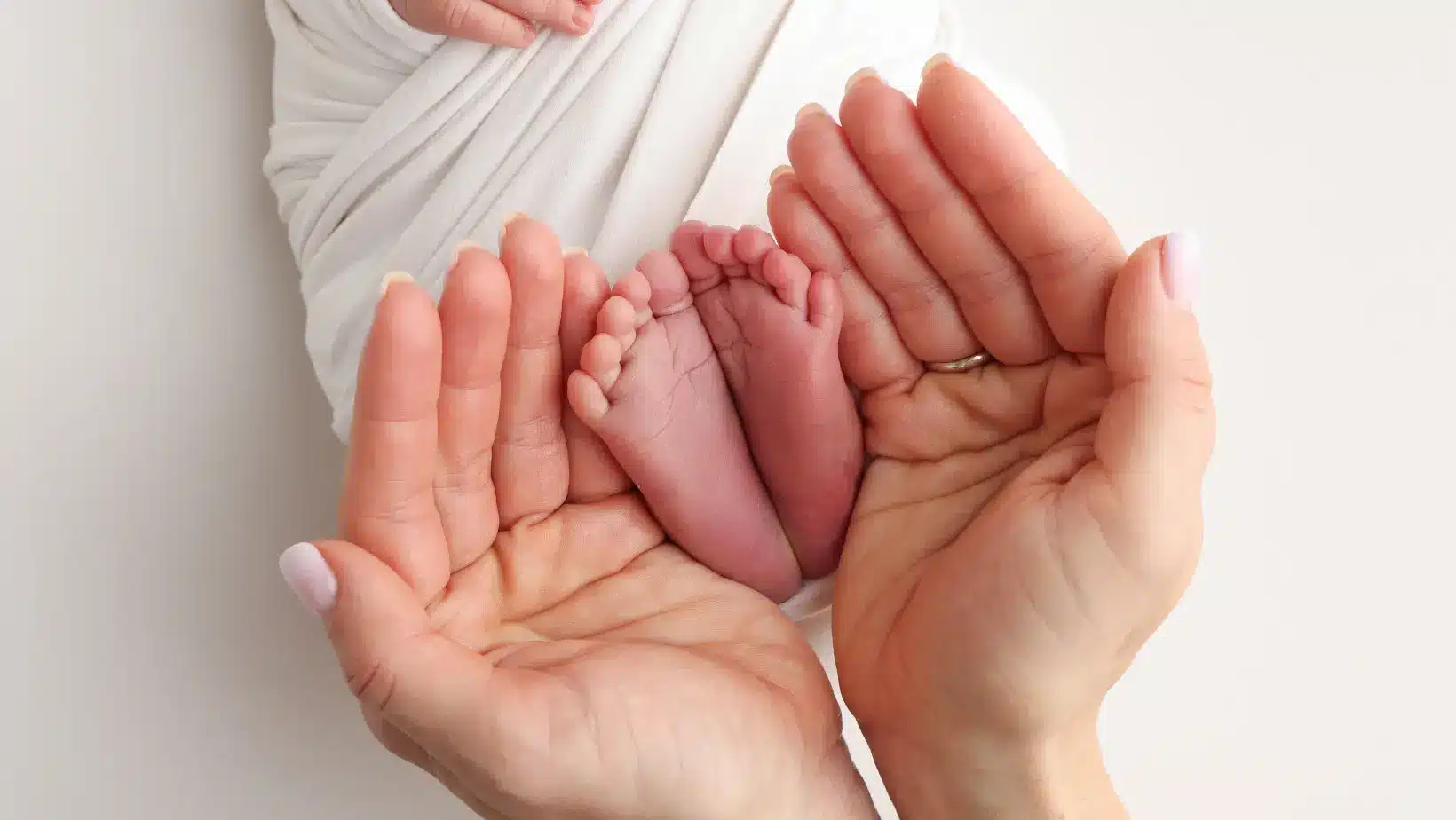To read the previous part, go to The Differences Between Term and Premature Childbirth.
Pour lire la partie précédente, consultez le billet Les différences entre un accouchement à terme et un accouchement prématuré.
What should you expect if your baby is sent to neonatology? If the situation allows for it, the medical staff may offer future parents the opportunity to visit the neonatology ward before given birth to become familiar with it and prepare them for it.
It’s quite an event for parents when seeing a really tiny baby in an incubator, plugged in with tubes here and there.
What type of technology will be used when your premature baby is in the neonatology ward?
- Some babies will need an artificial respirator to compensate for their immaturity, while others will need an oxygen tent;
- Premature babies are always plugged into monitors. There will be electrodes on their chest connected to a monitor to measure their heartbeat and breathing rate. The staff continually monitor their conditions;

- Very premature babies always have an intravenous. A venous route always has to be open to medicate or hydrate the baby quickly. It is often placed on the baby’s head because the vein is more visible and larger than in their elbow. But it can also be installed in the arm or foot if needed;
- All babies will have blood tests, almost routine chest x-rays and other specific tests as required;
- Very premature babies cannot coordinate their sucking, breathing and swallowing movements at the same time. So to feed them, for a specific period it will be intravenously or by gavage. Gavage means that a very soft tube is directly installed in the baby’s stomach via its nose or mouth. It’s used to feed them milk. The baby doesn’t need to make an effort to feed, so it can save its energy to continue to grow. Then the day will come when they can start breastfeeding or be fed by bottle.
Premature Birth and Mother Experiences
What emotion felt by mothers!
In general, new mothers really want to see their baby, but they may also fear or dread this moment. There is a feeling of emptiness when the baby leaves her uterus and is rushed off without having made contact. She is alone and feels empty.
The feeling is deep and heavy, and everything seems unreal, like in a dream!
Still weak due to her labour and delivery (vaginal or via cesarean), the mother will have difficulty moving. If she is in the same hospital, she may go to her first meeting on foot, in a wheelchair or even on a stretcher.
Those separated from their baby after childbirth because it was sent to another hospital should expect to wait several days before seeing it. Having someone she trusts in contact with the baby helps the new mother handle this waiting period better.
A neonatology ward is a very high-tech world, foreboding for those not knowledgeable about the medical field. The view can scare new parents, leading to stress and anxiety, especially if the baby’s health is precarious and unstable, or if their survival is still uncertain.
Each mother will react in her own way to the first contact with her baby. Some will find their baby beautiful. Others will think the baby is ugly, as their outside appearance makes them seem vulnerable, tiny, thin and red.
The emotional shock is undeniable. It’s like going through mourning, mourning a healthy pregnancy and childbirth. There are several successive stages to mourning:
- Denial;
- Fear;
- Loss of control;
- Anger and aggressivity;
- Guilt;
- Sadness and deception;
- Frustration.
The intensity and length depend on each person experiencing the mourning.
Premature Babies and Father Experiences
When childbirth occurs at term without complications, a father may be stressed about the unknowns he is facing. Imagine if his baby is born prematurely!
During labour, we often advise parents that someone will quickly leave with the baby after they are born to take them to intensive care. So they have to say bye to holding the baby after it’s born, the skin-to-skin they were expecting with their baby. Where is the warmth of childbirth? Where is the meaning? How can fathers find their way?
The father will often play a primary role with their baby. Most of the time, they can follow the baby from the delivery room to the neonatology ward. He can observe the baby and the setting, then go back a give the mother a report while she waits to be able to see her baby herself. It’s reassuring for a new mother to know that her partner is present with their baby. But this position can be challenging for fathers when the news about the baby’s health is not really good. The father can be torn between the fear for their baby and the desire to support his partner, who also needs him.
The father can also mourn the healthy term baby he was expecting, but the pace is different from women. Emotions run high, and their expression will vary based on the individual’s personality: crying, distressed, aggressive, angry, stupefied, speechless (keeps it inside), flight, absent (often will work more) are some examples.
Fathers also need to be reassured, listened to and supported. The neonatal medical team will try as hard as possible not to forget him.
The Reactions of the Extended Family
While the arrival of a baby can be seen as a delightful event, sometimes having a very premature baby plunges the new parents’ extended family into incomprehension.
Prematurity is poorly understood by those who have never been exposed to this reality. Many parents are uncomfortable announcing a premature birth to their family and friends. They fear hearing disparaging comments or managing different reactions.
Family and friends likely don’t know how to react to the parents’ distress. Unfortunately, the natural reaction is to keep a distance, which means that new parents aren’t often congratulated, sent flowers or gifts. The mood is often sadder, far from what the arrival of a baby is usually like.
And on returning home? Emptiness, an absence, and the separation from the baby make life difficult for parents. They have to go to the hospital to see their baby, yet come back home without it in their arms.
To continue reading, go to Attachment and Prematurity.
Pour continuer la lecture, rendez-vous à la suite, L’attachement et la prématurité.


